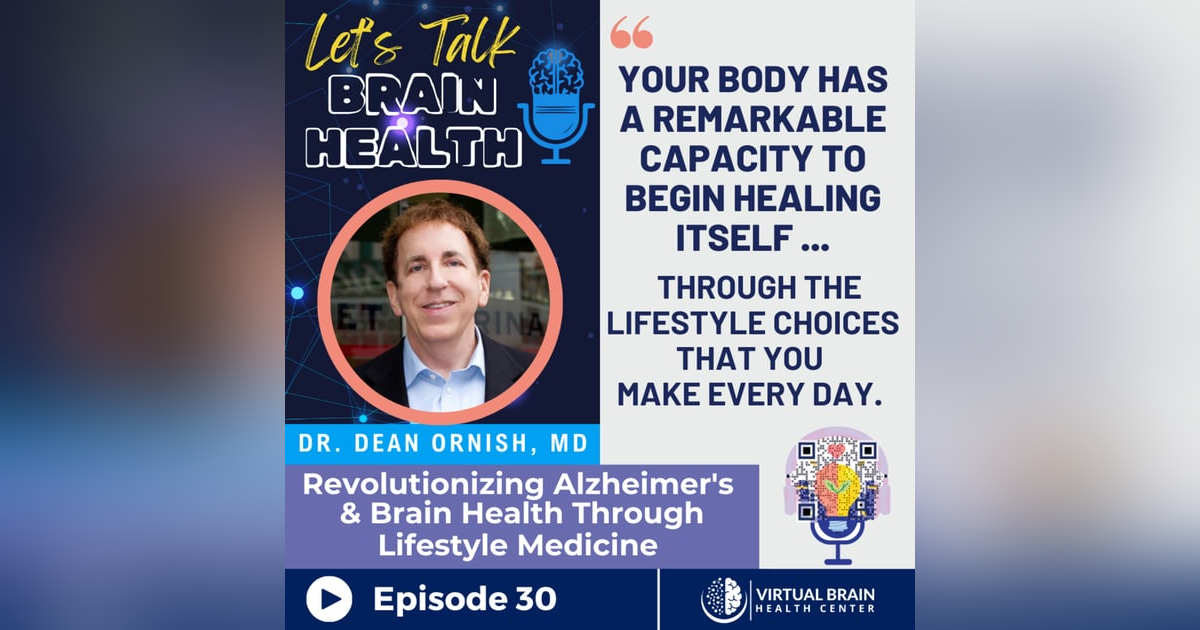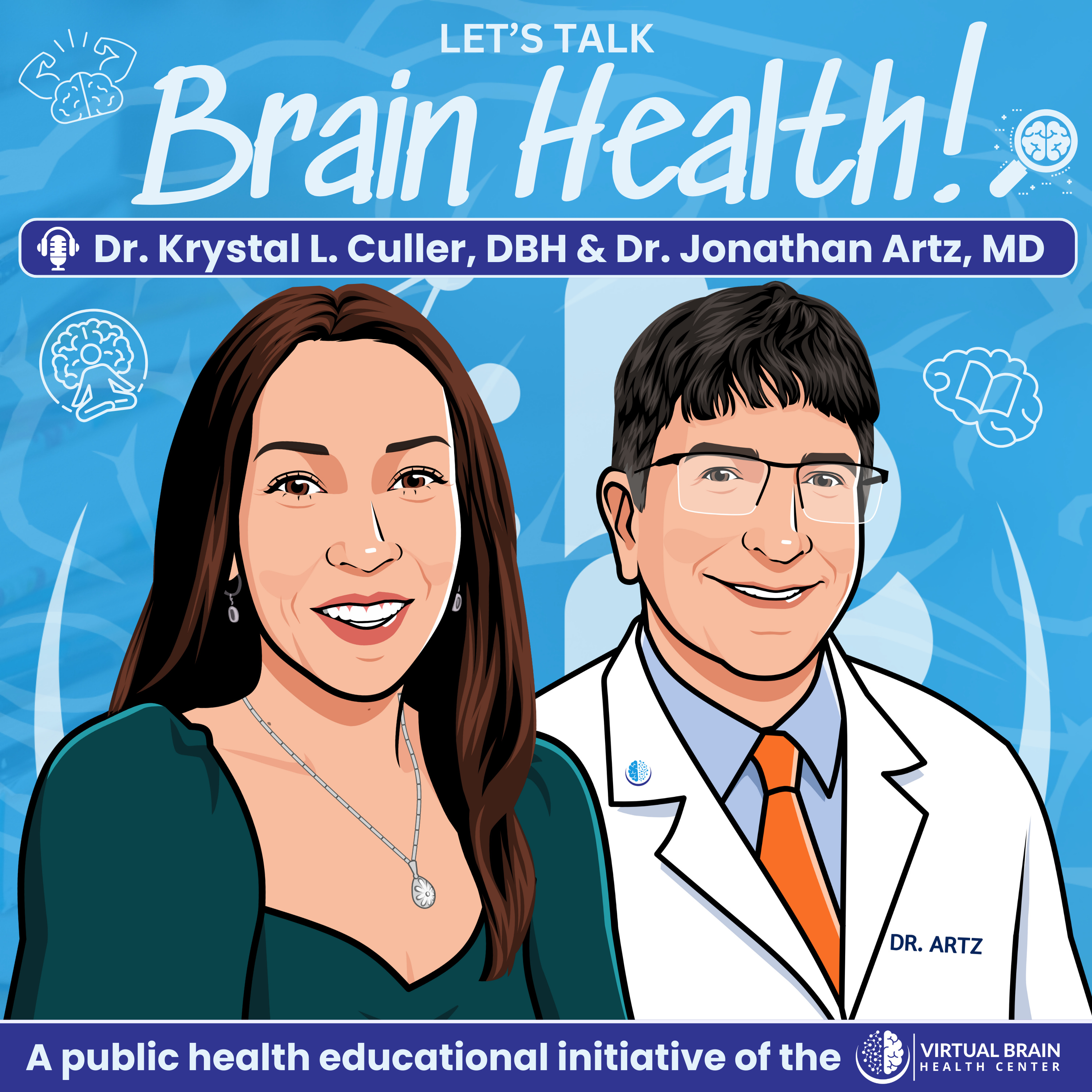Revolutionizing Alzheimer's & Brain Health Through Lifestyle Medicine with Dr. Dean Ornish

Join us in this enlightening episode as we welcome Dr. Dean Ornish, founder of the Preventive Medicine Research Institute and respected Clinical Professor of Medicine.
Dr. Ornish shares his groundbreaking research demonstrating that comprehensive lifestyle changes—focused on diet, exercise, stress management, and social support—can significantly improve cognition in early-stage Alzheimer's patients.
Discover the science behind these findings, personal stories, and insights on the future of brain health.
Learn how simple, accessible lifestyle modifications may offer hope in managing and even reversing cognitive decline.
00:00 Welcome and Introduction to Dr. Dean Ornish
01:52 Personal Connection to Alzheimer's Disease
02:25 Journey into Lifestyle Medicine
03:54 Groundbreaking Research on Lifestyle Changes
06:07 Impact of Lifestyle on Alzheimer's and Other Diseases
09:27 Details of the Lifestyle Interventions
14:20 Challenges and Discoveries in the Study
21:15 Future Research and Broader Implications
26:11 Final Thoughts and Takeaways
Resources:
- Access the evidence from the research study
- Learn more about the Preventative Medicine Research Institute
- Listen to our Season 2: Episode 7 conversation“The Nature Prescription: Lifestyle Medicine Insights with Dr. Ourdoors, Melissa Sundermann, MD" to learn more about the pillars of lifestyle medicine
--- Support this podcast: https://podcasters.spotify.com/pod/show/virtualbrainhealthcenter/support

Lifestyle Medicine Physician, Researcher, Author
Dean Ornish, M.D., is the founder and president of the non-profit Preventive Medicine Research Institute and Clinical Professor of Medicine at UCSF and Clinical Professor of Medicine at UCSD. He received his M.D. from the Baylor College of Medicine, was a clinical fellow in medicine at Harvard Medical School, and completed an internship and residency in internal medicine at the Massachusetts General Hospital. He earned a B.A. in Humanities summa cum laude from the University of Texas in Austin, where he gave the baccalaureate address.
For over 45 years, he has directed clinical research demonstrating, for the first time, that comprehensive lifestyle changes may begin to reverse even severe coronary heart disease, without drugs or surgery. Medicare created a new benefit category, “intensive cardiac rehabilitation,” to provide coverage for this program, which is now being covered when offered virtually. He directed the first randomized controlled trial demonstrating that comprehensive lifestyle changes may slow, stop or reverse the progression of early-stage prostate cancer. His research showed that comprehensive lifestyle changes affect gene expression, “turning on” disease-preventing genes and “turning off” genes that promote cancer and heart disease, as well as the first controlled study showing that these lifestyle changes may begin to reverse cellular aging by lengthening telomeres, the ends of our chromosomes which regulate aging (in collaboration with Dr. Elizabeth Blackburn, Nobel Laureate). He recently directed the first randomized controlled trial …Read More







